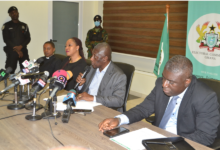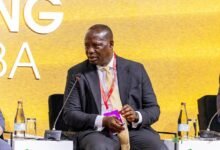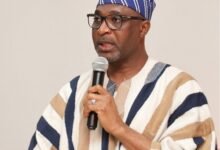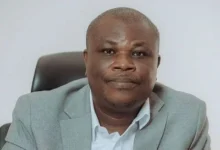
Ghana needs to develop strategies to generate more revenue to reduce borrowing to finance the country’s development programmes, the World Bank Regional Vice President for West and Central Africa, Ousmane Diagana, has said.
Describing the country’s debt as “high even by international standards,” he said the country could focus on local investments and also create the conditions to attract foreign direct investment.
Addressing a news conference in Accra on Monday, he said the bank would continue to help the country undertake reforms and leverage its potential to help achieve national development.
The visit, his first time since his appointment in July 2020, is to afford him the opportunity to hold high-level discussions with government officials on critical areas of the bank’s programme in Ghana including macro-economic, energy sector issues, COVID-19 pandemic and vaccine.
MrDiagana said structural reforms which would increase local and foreign investments were fundamental because those would contribute to expanding the tax base, allowing the country to increase its revenue mobilisation.
“Ghana has huge potential in agriculture, Ghana’s geographic conditions are absolutely favourable to export energy while, of course, ensuring that access to energy in Ghana to support the transformation of all the sectors is achieved.
“Ghanaians are known for their creativity, you have a strong education system. All the countries that have developed have had a clear vision to support the transformation of all its sectors,” he said.
The Ghana Beyond Aid Agenda, MrDiagana said, was an agenda that deserved applause because it had aptly conceptualised development as a long term agenda.
On post COVID-19 economic recovery, he praised the government for its accomplishment so far, saying, “Growth is already back at a level which was not expected at more than four per cent”.
He said the role of the bank as a development institution would be to continue to work with the country to create the condition to promote and sustain growth and also ensure the growth was equitably distributed.
MrDiagana commended the government for managing the pandemic well and urged authorities to ensure that the achievement of the 70 per cent vaccination target was achieved.
“Progress have been made but efforts should be pursued and sustained to ensure the maximum of the population are vaccinated. The achievement of 70 per cent target vaccination is critical for the economic recovery,” he said.
Asked if the bank was pleased with the funds it gave the government to fight the COVID-19 pandemic, he said the bank was not aware of any challenge associated with the use of the funds.
“We have a robust mechanism of supervising programmes. In addition we make sure we have independent audits for all programmes we support, COVID or no COVID because resources should be used for intended purpose. This is what we are doing,” he said.
MrDiagana said the bank was still engaging with all African countries to mobilise more resources because “COVID is not over and having access to vaccines is key to survival. We are ready to support.”
BY JONATHAN DONKOR







